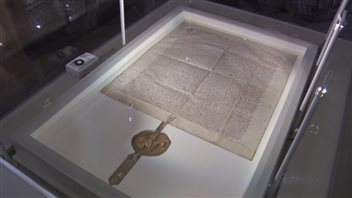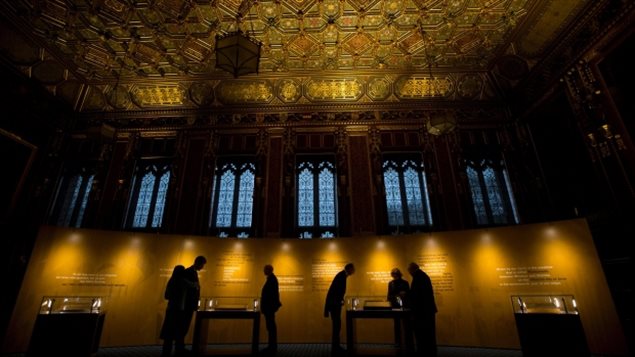The Magna Carta, well actually a copy of it made in 1300, is on display from today until July 26th, at the Museum of History in Gatineau, Quebec.
It is part of the 800th anniversary celebration of the document, which means ‘great charter’, that is the basis for many of the rights and liberties we take for granted today.
No one is above the law
Created in 1215 by barons in England in an attempt to deal with the arbitrary powers of King John 1, according to the Magna Carta Canada website. It was officially sealed at Runnymede, just west of London, on June 10, 1215.

“It expresses four key principles: that no one is above the law, not even the monarch; that no one can be detained without cause or evidence; that everyone has a right to trial by jury; and that a widow cannot be forced to marry and give up her property ― a major first step in women’s rights,” the website reads.
The Charter of Forest, issued two years later in 1217, gets a little more specific.
“It re-established the right of free men to hunt and farm in the king’s royal forest. It also substantially reduced the area of the royal forest, which had accounted for roughly a third of England, and banned severe punishments for forest offences such as hunting protected deer,” the website reads.
While there are several copies of the revered document, this one has never left the Durham Cathedral in the U.K until now.
“It’s taken four years of intense negotiations. It’s not easy to move a document like this. But once we were in negotiations, we felt it was something we wanted to do to celebrate the anniversary, and particularly seeing that the Queen wanted the Commonwealth included, this was an opportunity to do that,” said Rev. Rosalind Brown, the Durham Cathedral’s librarian.
“To understand how blessed we are to live here and now, you have to understand what the foundations of this country are, and this document was really the blueprint of many of the rights and freedoms that we enjoy here today,” said Suzy Rodness, in an interview with CBC News. Rodness, along with her husband, worked for several years to bring the Magna Carta to Ottawa-Gatineau.







For reasons beyond our control, and for an undetermined period of time, our comment section is now closed. However, our social networks remain open to your contributions.